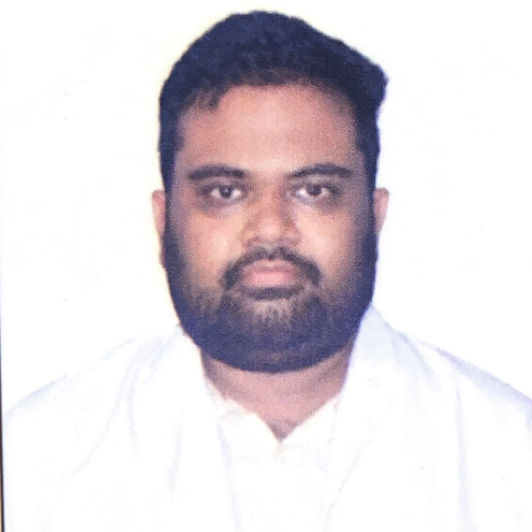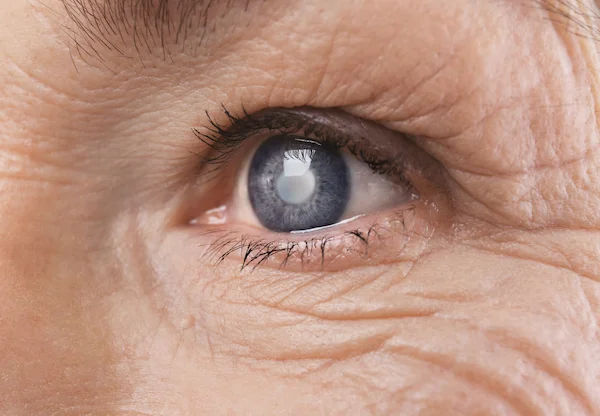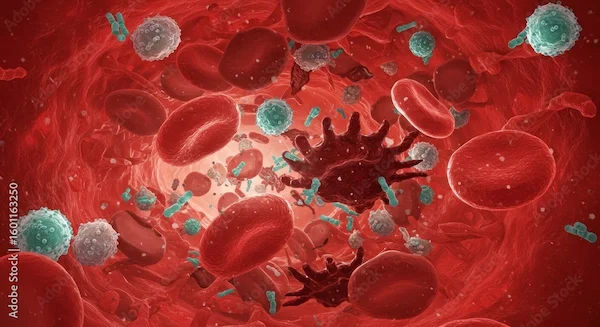Thunderclap Headache Symptoms, Causes and Treatment
Know what is thunderclap headache is, its symptoms, treatment and diagnosis. Learn about the management of thunderclap headache and more.

Written by Dr. Vasanthasree Nair
Reviewed by Dr. Rohinipriyanka Pondugula MBBS
Last updated on 22nd Aug, 2025

Thunderclap Headache: Symptoms, Causes and Treatment
Introduction
Headaches are common, and most of us experience them from time to time. However, a thunderclap headache is different; it strikes suddenly and severely, often described as the worst headache of your life. Unlike regular headaches that build up gradually, this type comes on within seconds to minutes and can be a sign of a serious medical condition.
If you or someone you know experiences a thunderclap headache, it’s important to seek immediate medical attention, as it could indicate a life-threatening issue.
In this article, we’ll discuss the symptoms, causes, and treatment of thunderclap headaches in simple terms so you can recognise and act quickly if needed.
What is a Thunderclap Headache?
A thunderclap headache is an extremely severe headache that reaches its peak intensity within 60 seconds. It can happen without warning and may be accompanied by other concerning symptoms like nausea, vomiting, or even loss of consciousness.
Unlike migraines or tension headaches, which develop slowly, a thunderclap headache is sudden and explosive like a "clap of thunder." Because of its intensity and rapid onset, it should never be ignored.
Consult a General Practitioner for Personalised Advice
Symptoms of a Thunderclap Headache
The main symptom is a sudden, excruciating headache, but other warning signs may include:
• Severe, sharp, or stabbing pain (often at the back of the head or throughout the head)
• Neck stiffness (difficulty moving the neck)
• Nausea or vomiting
• Confusion or difficulty speaking
• Vision changes (blurred or double vision)
• Loss of consciousness or fainting
• Weakness or numbness (especially on one side of the body)
If you experience any of these symptoms, seek emergency medical care immediately, as they could indicate a serious underlying condition.
What Causes a Thunderclap Headache?
Thunderclap headaches are often caused by serious conditions affecting the brain or blood vessels. Some possible causes include:
1. Subarachnoid Haemorrhage (Bleeding in the Brain)
A ruptured brain aneurysm (a weak spot in a blood vessel) can lead to bleeding around the brain.
This is a medical emergency and requires immediate treatment.
2. Reversible Cerebral Vasoconstriction Syndrome (RCVS)
Blood vessels in the brain suddenly narrow and spasm, causing severe pain.
This condition can sometimes resolve on its own, but may need medical intervention.
3. Stroke or Mini-Stroke (TIA)
• A stroke or transient ischemic attack (TIA) can cause sudden, severe headaches.
• Other symptoms may include weakness, slurred speech, or confusion.
4. Brain Infection (Meningitis or Encephalitis)
• Infections like meningitis (inflammation of brain membranes) can trigger thunderclap headaches.
• Fever, neck stiffness, and sensitivity to light are common signs.
5. Blood Pressure Crisis (Hypertensive Emergency)
• Extremely high blood pressure can cause sudden, intense headaches.
• This requires urgent treatment to prevent complications.
6. Other Possible Causes
• Blood clots in the brain
• Head or neck injury
• Spontaneous cerebrospinal fluid leak
Because thunderclap headaches can signal a life-threatening condition, getting immediate medical help is crucial.
How is a Thunderclap Headache Diagnosed?
If you experience a thunderclap headache, doctors will perform urgent tests to determine the cause, such as:
• CT Scan or MRI – To check for bleeding, clots, or other brain abnormalities.
• Lumbar Puncture (Spinal Tap) – To detect infections or bleeding in the spinal fluid.
• Blood Tests – To check for infections or other underlying conditions.
• Angiography – To examine blood vessels in the brain for blockages or aneurysms.
Early diagnosis is critical to prevent complications.
Treatment for Thunderclap Headaches
Treatment depends on the underlying cause. Some possible treatments include:
• Emergency Surgery – If there’s a ruptured aneurysm or brain bleed.
• Medications – To control blood pressure, prevent seizures, or treat infections.
• Pain Relief – Strong painkillers may be given in a hospital setting.
• Blood Pressure Management – If hypertension is the cause.
Do not ignore a thunderclap headache—delay in treatment can be dangerous.
Can Thunderclap Headaches Be Prevented?
While some causes (like aneurysms) cannot always be prevented, you can reduce your risk by:
• Controlling High Blood Pressure – Regular check-ups and medication if needed.
• Avoiding Smoking & Excessive Alcohol – These can weaken blood vessels.
• Managing Stress – Stress can contribute to high blood pressure.
• Staying Hydrated – Dehydration can trigger headaches.
• Seeking Immediate Help – Never ignore sudden, severe headaches.
When to See a Doctor?
A thunderclap headache is a medical emergency. Call emergency services or go to the nearest hospital if you experience:
• A sudden, severe headache (the worst you’ve ever had).
• Headache with fever, confusion, weakness, or vision changes.
• Headache after a head injury.
If you’re unsure, it’s always better to get checked immediately rather than wait.
Final Thoughts
A thunderclap headache is not just a bad headache; it’s a warning sign that something serious may be happening in your brain. Never ignore it. If you or someone you know experiences this type of headache, seek emergency care right away.
Consult a General Practitioner for Personalised Advice
Consult a General Practitioner for Personalised Advice

Dr. Rajib Ghose
General Practitioner
25 Years • MBBS
East Midnapore
VIVEKANANDA SEBA SADAN, East Midnapore

Dr. Suvadeep Sen
Critical Care Specialist
12 Years • MBBS, MD, FNB (CRITICAL CARE MEDICINE), EDIC
Mumbai
Apollo Hospitals CBD Belapur, Mumbai
Dr. Kaushik Chakraborty
General Practitioner
23 Years • MBBS
Kolkata
Dr Kaushik Chakraborty, Kolkata

Dr S Lakshmi Narasimha Reddy
General Practitioner
9 Years • MBBS
Kondapur
Singam's Kids Clinic, Kondapur

Dr. Avinash Pasuparthy
General Practitioner
5 Years • MBBS
Visakhapatnam
Apollo Clinic Vizag, Visakhapatnam
Consult a General Practitioner for Personalised Advice

Dr. Rajib Ghose
General Practitioner
25 Years • MBBS
East Midnapore
VIVEKANANDA SEBA SADAN, East Midnapore

Dr. Suvadeep Sen
Critical Care Specialist
12 Years • MBBS, MD, FNB (CRITICAL CARE MEDICINE), EDIC
Mumbai
Apollo Hospitals CBD Belapur, Mumbai
Dr. Kaushik Chakraborty
General Practitioner
23 Years • MBBS
Kolkata
Dr Kaushik Chakraborty, Kolkata

Dr S Lakshmi Narasimha Reddy
General Practitioner
9 Years • MBBS
Kondapur
Singam's Kids Clinic, Kondapur

Dr. Avinash Pasuparthy
General Practitioner
5 Years • MBBS
Visakhapatnam
Apollo Clinic Vizag, Visakhapatnam

.jpeg)


